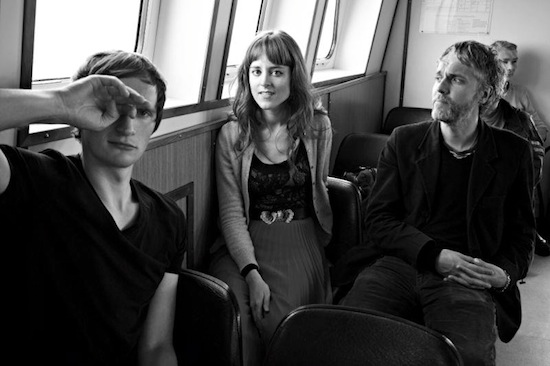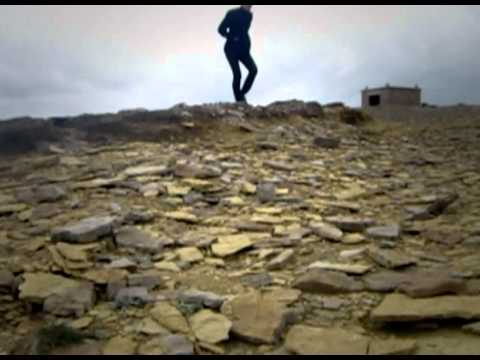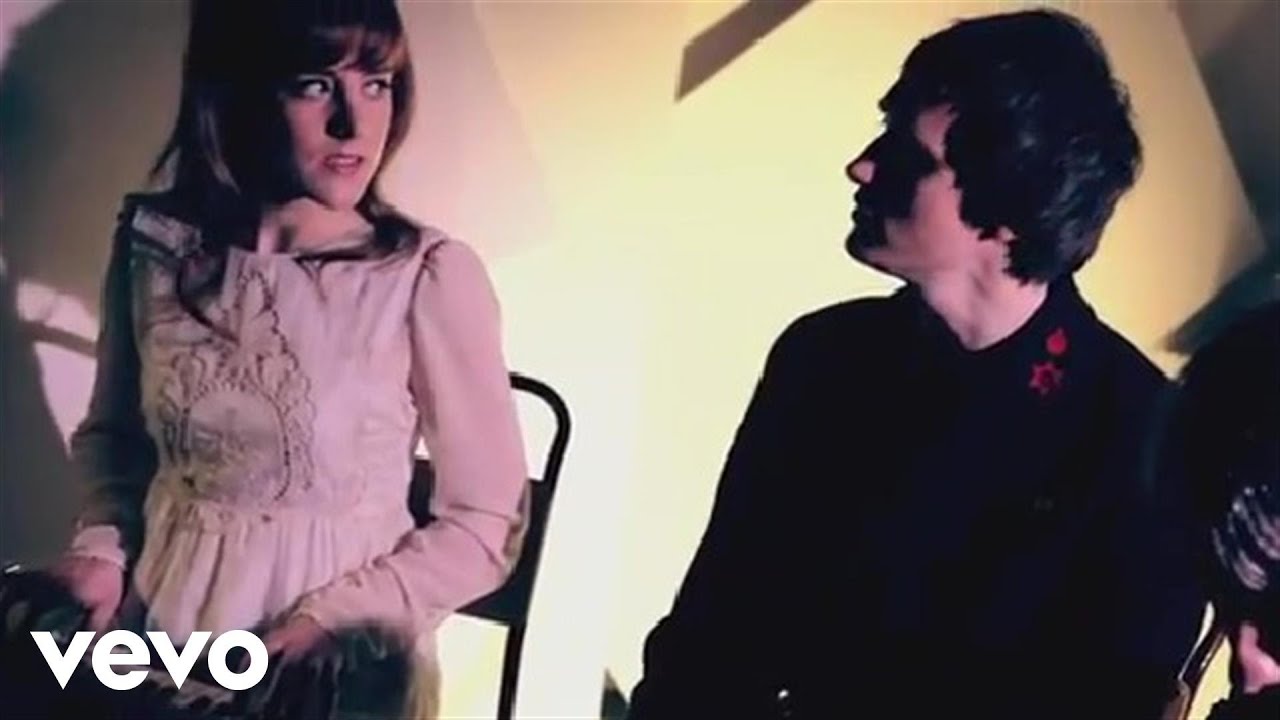The way Erland Cooper likes to tell it, the story starts with a dream, one in which the Orcadian musician – best known as the front man of Erland And The Carnival – is visited by the ghost of a long dead fellow citizen of the Orkney Islands, Betty Corrigall. Deserted in the late 1770s by a man who left her pregnant at the age of 27, she’d committed suicide and – refused a Christian burial – was interred in unconsecrated ground on the borders of the parishes of Hoy and North Walls. The poor woman was denied rest, however: she was dug up again in 1933 by peat cutters, the noose with which she hung herself lying in her coffin beside her, and, despite being reburied, was repeatedly exhumed by soldiers stationed on the islands during the Second World War. A small, wooden cross was finally erected upon her grave in 1949, but even then it took another quarter of a century for it to be marked with anything more permanent.
It’s little wonder, then, that Betty Corrigall become something of a legend on the islands, and that she might have made her mark on a young Scotsman who spent his childhood on the island. Nonetheless, when he tells the story, Cooper expresses surprise at the fact that she should have emerged once more, this time visiting him at night to insist that he write an album about his home. He’d not thought about her for years. Still, it was enough to persuade Cooper that he should follow his nocturnal muse. He swiftly shared the idea with fellow Carnival member Simon Tong (also of The Verve and The Good, The Bad & The Queen), and the concept of The Magnetic North was born.
The precision of Cooper’s dream sounds more than a little far-fetched: Corrigan delivered the actual song titles to him, he claims, though most are in fact areas on the islands. But places like the Orkneys thrive on folklore and fable. Cooper’s inspiration is only important in that it reflects the apocryphal tendencies of remote communities and their traditions. What matters more is whether or not he and his colleagues have succeeded in communicating something of their subject, and – fortunately – they have: Orkney: Symphony Of The Magnetic North is a wonderful homage to both the islands’ dramatic landscape and the people and myths that are as integral to Orkney’s existence as its peat and rocky precipices.
Tonight is the first time that The Magnetic North have performed outside of Orkney in a way that comes close to representing their recorded output. Actually, it arguably eclipses it. For the album, and indeed its first live outing (in Orkney’s St Magnus Cathedral), Cooper, Tong and Peel – who’d been invited to join the band after opening for Erland And The Carnival – had employed local musicians to flesh out their ideas after travelling to the islands together.
“We called ahead,” Cooper tells me after the show. “I asked my mum to find a choir, and we ended up about two weeks later in a church underneath the big hill on Hoy recording this slightly eccentric choir. They didn’t know what to expect, and neither did we. We turned up with a box of doughnuts and a microphone or two, and just got on a little boat, went over to the island and recorded them. We left with this feeling of, ‘What have we done?’ And then before you knew it, we had a big show up in Orkney in the cathedral, and all the locals turned out, and the record was out!”
For that first gig, the band recalled the local choir from the recording sessions, while Cooper also reached out to his old music teacher, a trombonist. “He brought his students,” Tong remembers, “the best string players and the best brass players.” Tonight they’re absent, but instead, gathered around Peel, Tong and Cooper (and drummer James Field) are a twenty-piece choir, a four piece string group – briefly bulked out by Arcade Fire’s Sarah Neufeld – and a three piece brass section, all of them selected by André de Ridder, a conductor acclaimed for his work with These New Puritans, Gorillaz and Mouse On Mars. (He’d seen the band perform a couple of songs a little over a year ago and immediately insisted that they collaborate.) These musicians are no more formal than their predecessors, however: the cello player, in fact, is wearing his instrument like a guitar, a strap wrapped over his shoulder so he can play standing up. The local Cantus Domus choir are also casually dressed, while De Ridder himself is hidden within the string section, only occasionally feeling the urge to conduct his musicians at critical moments.
They perform in front of a vast screen upon which images of Orkney, both past and present, are projected. Quite what’s so moving about the sight of the archipelago’s vast, towering cliffs and its endless North Sea horizons – mixed with vintage footage of its island’s occupants – is hard to say, but anyone who’s seen Man Of Aran, Robert Flaherty’s semi-fictional documentary about the islands off the west coast of Ireland, will be familiar with the elemental spectacle such footage can provide. When British Sea Power performed their soundtrack to the 1934 film on a remote island at Norway’s Træna Festival a few years back, even hardened fishermen who’d lived amongst such terrain all their lives were moved to tears. Perhaps it’s that there’s something primal in this imagery, or maybe it’s a melancholic nostalgia for simpler, if harder times, when life was quieter and offered far more appealing challenges than where to charge one’s iPhone. Whatever the reasons, the images lend their music an immediacy and depth that underlines the project’s sentiments.
They begin in a low key fashion with ‘Stromness’, whose trombones are meant to evoke the ship horns of the ferries that arrive in the eponymous bay where Cooper once lived, before slipping casually into ‘Black Craig’, whose placid waltz nonetheless hints ominously at trouble on the horizon, the choir finally making its first appearance, their voices like the dramatic arrival of a storm. Combined with the imagery beamed behind the musicians, this sensational moment provides an undeniable sense that we are no longer sat in a reserved East German theatre and are in fact being guided towards a far more wild, rural environment. This sensation continues with the gentle Arcade Fire mannerisms of ‘Rackwick’, named for a small fishing community that overlooked a long, sandy beach and a bay into which ships often lost their way, and ‘Ward Hill’, which – despite the most likely unintentional resemblance to Billy Joel’s ‘We Didn’t Start The Fire’ in Cooper’s delivery of the verse – paints a prosaic portrait of the islands’ highest hill, bursts of brass and choir lighting it up like sunshine.
Beneath the film footage, Peel – in a vivid purple blue dress, her orange hair begging to be described as siren-esque – grins nervously as the show proceeds, her fingers tapping out gentle melodies on a tiny keyboard, occasionally exchanging looks of pleasure with Cooper, who plays as though he was born to be on stage, one leg tucked behind the other, his fringe artfully swept to one side. Tong, meanwhile, performs in the most inscrutable fashion, his face betraying no emotion of any kind. Later on he’ll tell me: “After we finish I enjoy it, but during the gig I don’t really enjoy it, because you don’t know what’s going to happen! ‘Are you going to get this fucking right?’”
It’s in fact the possibility that they may not get it right that makes tonight’s show so effective. They’d only met their accompanists the previous day – “We had a run through yesterday, a bit of a run through today, and we’re on!” Tong marvels afterwards – and though the musicianship on display is almost entirely perfect, the predominant feeling is that this is a project floated on passion rather than formal academia. It’s a relief: anything slicker might have felt like a tourist board advertisement and would have failed to match the atmosphere created within the recordings, the kind that can only be captured when working with enthusiasts rather than professionals. Of course, when I attempt to encapsulate their charm afterwards as “amateurish”, Cooper leaps up from the table in mock offence, while Tong hides his initial shock at the use of the word behind reserved laughter. Peel reassures me, however, by joking that they had to ask the choir to “to be more like fishermen. They’re not pub singers: they can hit the high notes!”
While clearly an ambitious project, nothing about The Magnetic North feels overstretched or flamboyant. The addition of extra musicians merely succeeds in bringing to life the more subdued elements of an album that Cooper now describes as “like kind of a sketch, in a sense. An album usually is, especially when it comes together quickly. We recorded half of it in my parents’ living room overlooking the North Sea! What started as a dream – it sounds crazy – turned into a sketch, and an idea turned into an album, and before you know it…”
Yes, before you know it you’ve got twenty seven extra musicians joining you on stage, transforming your songs into widescreen drama with a touch of the David Axelrods, albeit were he on an angling trip. It’s another one of those things that contributes to the myth-making process, and as they proceed with further album tracks – the almost Disney musical stylings of ‘Netherton’s Teeth’, in which Peel’s and Cooper’s voices join magically in unison over a touching tale of childhood games; the rippling beauty of ‘Bay Of Skaill’, through which the choir’s volume builds incrementally like an incoming tide – it seems less and less likely that this performance will prove to be a one-off. In fact talks, they hint, are already underway for a prestigious performance in London later this year.
They finish, just as the album does, with ‘Orphir’, the choir now in hushed voices like brooding clouds overhead, and ‘Yesnababy’, Peel and Cooper singing a delightful canon that confirms their musical chemistry. Even Tong lets slip a quiet smile. They return for two encores, forced to repeat ‘Warbeth’ once they’ve run out of material, before taking an endearingly awkward bow with their guests. There was, Peel concedes later on over a well-earned drink, no time to think about such formalities before. But, she grins, still delighted by how things have worked out, “it was brilliant. Personally, for me to hear the strings and the brass and the things you write on the computer done in real life, it always gives you that sense of, ‘oh my God!’”
And with that she, Tong and Cooper scurry off to celebrate a dream coming true with André De Ridder and further glasses of champagne. They have every right to do so: Betty Corrigall’s had to wait two centuries for peace, and at last she has a fitting memorial. This one’s for her…
Orkney: A Symphony Of The Magnetic North will be re-released with a thirty minute documentary, Hunting For Remoteness – have a watch of the trailer below – on June 24 via Full Time Hobby




